|
|
|
|
|
|
|
|
Today's Congressional Action:
The House and Senate are in session and expected to consider non-Arctic legislation.
|
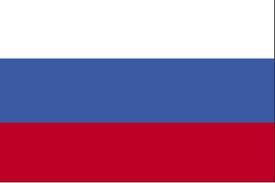 Russia Building Two Multi-Purpose Ships for Arctic Operations. Russia Building Two Multi-Purpose Ships for Arctic Operations. Known as Project 03182, the ships are to act as smaller replenishment/ refuellers for Russian warships operating in the Arctic. They will also have a role of patrolling and taking on search and rescue missions. They could also be used to tow other ships. The first ship, to be named RFS Mikail Barskov, will have a 3,500 ton displacement and a crew of 24, according to various media reports. It is 80 meters in length and will also carry a helicopter. Ottawa Citizen
Manitoba Pitches Protection Plan for Hudson Bay Belugas. The Government of Manitoba has drafted an action plan to help conserve the world's largest beluga population, which summers in the provinces northern river estuaries off Hudson Bay. An estimated 57,000 belugas spend their summers within the estuaries of Manitoba's Churchill, Nelson and Seal rivers to give birth and raise their young. Nunatsiaq Online
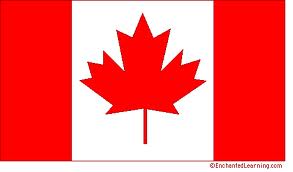 Protection of Marine Areas to be Based on Science, Hunter Tootoo Says. Protection of Marine Areas to be Based on Science, Hunter Tootoo Says. Federal Fisheries Minister Hunter Tootoo says science will determine not only which areas of Canada's oceans the government will designate for protection, but also what development, if any, will be permitted in those areas. The minister also reaffirmed his government's commitment to meeting an ambitious target of setting aside five per cent of Canada's oceans as marine-protected areas by next year and 10 per cent by 2020. Canada agreed to the commitments outlined in the Convention on Biological Diversity in 2010 In Nagoya but so far has only protected 1.3 per cent of its territorial waters. CBC News
Top Five US Policy Priorities for the Arctic in 2016. 2016 will be an important and challenging year for the Arctic region. It marks the final year of the U.S. chairmanship of the Arctic Council. In July 2016, NATO will hold a major summit in Poland that offers an opportunity for the Alliance to focus on the Arctic. Russia is expected to invest heavily in the Arctic region even with the fall in crude oil prices. To ensure that the U.S. maximizes its leadership role on the Arctic region, the following issues should top its Arctic agenda for 2016: US Chairmanship of the Arctic Council; Arctic Security and the 2016 NATO Summit in Warsaw; Economic Freedom in the Arctic; US Arctic Waters; and, Russian Militarization of the Arctic. Heritage Foundation
Storytellers Seek to 'Amplify Voices' of Alaskans Enduring Impacts of Climate Change. The steep drop in oil prices over the last year has forced layoffs of thousands of oil-industry workers in Alaska and elsewhere around the oil patch. Three of those workers talked about the boom-and-bust of North Dakota's Bakken oil fields lives in a recent documentary series. "I turned my life completely upside down and around. Hadn't seen my wife for six months. Moved 1,100 miles, ..." says Don Williams, who moved to the Bakken from Missouri, only to become disillusioned by the boom-town greed he encountered. KUAC
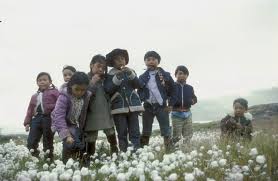 Climate and Politics Could Test Arctic People. Climate and Politics Could Test Arctic People. People in the Arctic appear to have an inherent ability to adapt to climate change, perhaps because they are so used to accepting a climate that is changeable and uncertain. "Arctic populations are often identified as being highly vulnerable people, but that's not necessarily what the research shows," says James Ford of the geography department at McGill University. Futurity: Research News
|
Legislative Action
No Arctic legislation was formally considered Friday.
|
|
Future Events
National Security Challenges and Icebreaking Operations in the Arctic, January 13, 2016 (Washington, DC). In partnership with the United States Senate Arctic Caucus, CSIS will host a high-level discussion to examine the United States' icebreaking capabilities in the polar regions, as well as identify emerging national security challenges specific to the Arctic. This conference will analyze the state of U.S. readiness in the Arctic as well as address the questions related to President Obama's announcement in August 2015 to accelerate the acquisition of additional icebreakers.
Ice Floes and Global Economic Woes: The Future of Arctic Shipping Considered, January 13, 2016 (Washington, DC). The Center for Strategic and International Studies host this discussion will analyze the current and future state of play related to destination shipping and transshipment across the Arctic region. As energy and commodity prices have plummeted and global economic growth softens, significant new Arctic investments have also slowed. How has this impacted Arctic shipping? Additionally, on January 1, 2017, the International Code for Ships Operating in Polar Waters (Polar Code) will likely enter into force with subsequent adjustments to the International Convention for the Prevention of Pollution from Ships (MARPOL) and the International Convention for the Safety of Life at Sea (SOLAS). How will implementation of the Polar Code impact Arctic shipping? Finally, as Arctic states are focusing on enhanced Arctic maritime safety, stewardship, and domain awareness, there continues to be a lack of Arctic marine infrastructure, particularly in the U.S. What is the latest state of play on improving maritime infrastructure?
"Arctic Matters" day at the National Academy of Sciences, January 14th, 2016 (Washington, DC, USA)This symposium is part of an ongoing initiative of the National Academies of Science Polar Research Board to expand public understanding of why the dramatic changes affecting the Arctic region ultimately matter to us all. The agenda features engaging presentations and discussions with top Arctic science and policy experts, and displays and interactive exhibits that illustrate Arctic change and its global impacts. The event is free and open to the public. There are sponsorship opportunities, and a call for exhibitor applications. Audience space is limited, so register today; and please encourage your friends, neighbors, and colleagues to participate-as our goal is to reach well beyond the small circle of specialists who typically attend Arctic-themed events in the DC area.
The U.S. Arctic Research Commission is the primary sponsor of this event.
SMARTIC Game Night, January 14, 2016 (Washington, DC). As climate change drives rising temperatures, sea ice is decreasing and the Arctic Ocean is opening up, creating new challenges and opportunities for stakeholders in the region. The Strategic Management of Resources in Times of Change (SMARTIC) activity is an interactive simulation where players take on the role of key Arctic stakeholders, setting resource conservation and development priorities based on changing conditions. Come and practice your negotiation skills as you try to resolve conflicts, manage competing interests, and respond to crises in the Arctic Ocean region! SMARTIC is a project of the PoLAR Partnership. The PoLAR Partnership is supported by a grant from the National Science Foundation (DUE-1239783).
Far from being a remote planetary 'deep-freeze', the Arctic region today is recognized as a dynamic environment that has played a major role in the evolution and spread of animals and plants as well as the migrations and development of peoples and cultures. This presentation begins by investigating why Late Quaternary megafauna like the mammoth and the woolly rhinoceros went extinct while others like caribou and bison prevailed. What caused these differential outcomes? And what was the role of humans and climate in the dramatic changes that took place subsequently?
ARCUS Arctic Research Seminar Series: Dr. Julie Brigham-Grette, January 15, 2016 (Washington, DC, USA and Webinar).The ARCUS Arctic Research Seminar Series brings some of the leading Arctic researchers to Washington, D.C. to share the latest findings and what they mean for decision-making. The seminars are open, and will be of interest to Federal agency officials, Congressional staff, NGOs, associations, and the public. The inaugural seminar (Friday, 15 January at 12:00 - 1:00 p.m. Eastern Time) will be presented by Dr. Julie Brigham-Grette, Geosciences Professor at the University of Massachusetts, and Chair of the U.S. National Academy of Sciences Polar Research Board.
East-West Arctic Cooperation During Times of Global Tension, January 15, 2016. Can the United States and its allies cooperate with Russia, China and other Asian nations during times of tense relations - or will cooperation on common interests in the Arctic succumb to the more familiar geopolitical tensions of the Cold War era? Stimson will host this event. Vice Admiral Charles Michel, the Vice Commandant of the United States Coast Guard, will deliver a keynote speech on the new Arctic Coast Guard Forum established to promote maritime safety and security cooperation in the Arctic. Following VAdm. Michel's presentation, a panel of experts will discuss the progress and challenges to future East-West cooperation in the Arctic region.
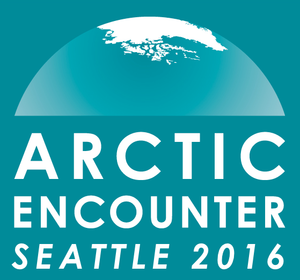 Building upon the preceding Arctic Encounter event in Paris, the third annual Arctic Encounter Symposium (AES) in Seattle, Washington will convene policymakers, industry leaders, and leading experts to confront the leading issues in Arctic policy, innovation, and development. The AES mission is to raise awareness, engage challenges, and develop solutions for the future of a region and a people. The two-day program includes two keynote luncheons, expert plenary sessions, break out sessions, a networking cocktail reception and seated dinner. A closing reception will take place at the conclusion of the program. Building upon the preceding Arctic Encounter event in Paris, the third annual Arctic Encounter Symposium (AES) in Seattle, Washington will convene policymakers, industry leaders, and leading experts to confront the leading issues in Arctic policy, innovation, and development. The AES mission is to raise awareness, engage challenges, and develop solutions for the future of a region and a people. The two-day program includes two keynote luncheons, expert plenary sessions, break out sessions, a networking cocktail reception and seated dinner. A closing reception will take place at the conclusion of the program.
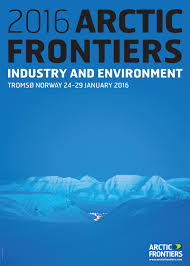 2016 Arctic Frontiers, January 24-29, 2015 (Tromso, Norway).The Arctic is a global crossroad between commercial and environmental interests. The region holds substantial natural resources and many actors are investigating ways to utilise these for economic gain. Others view the Arctic as a particularly pristine and vulnerable environment and highlight the need to limit industrial development. Arctic Frontiers 2016 will discuss the balance between resource utilisation and preservation, and between industrial and environmental interests in the Arctic. Envisioning a well-planned, well-governed, and sustainable development in the Arctic, how can improved Arctic stewardship help balance environmental concerns with industrial expansion? How can the industrial footprints from future business activities be minimised? And last, but not least, what role will existing and emerging technologies play in making industrial development profitable and environmentally friendly, securing a sustainable growth scenario for Arctic communities? 2016 Arctic Frontiers, January 24-29, 2015 (Tromso, Norway).The Arctic is a global crossroad between commercial and environmental interests. The region holds substantial natural resources and many actors are investigating ways to utilise these for economic gain. Others view the Arctic as a particularly pristine and vulnerable environment and highlight the need to limit industrial development. Arctic Frontiers 2016 will discuss the balance between resource utilisation and preservation, and between industrial and environmental interests in the Arctic. Envisioning a well-planned, well-governed, and sustainable development in the Arctic, how can improved Arctic stewardship help balance environmental concerns with industrial expansion? How can the industrial footprints from future business activities be minimised? And last, but not least, what role will existing and emerging technologies play in making industrial development profitable and environmentally friendly, securing a sustainable growth scenario for Arctic communities?
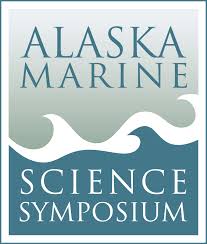
Alaska Forum on the Environment, February 8-12, 2016 (Anchorage, Alaska, USA). The Alaska Forum on the Environment (AFE) is Alaska's largest statewide gathering of environmental professionals from government agencies, non-profit and for-profit businesses, community leaders, Alaskan youth, conservationists, biologists and community elders. The diversity of attendees and comprehensive agenda sets this conference apart from any other. Each year there are over 80 technical breakout sessions and sensational Keynote Events. There will be a full week of sessions on climate change, energy, environmental regulations, cleanup and remediation, fish & wildlife, solid waste, and more.
5th Annual Fletcher Opening Arctic Conference, March 12, 2016. The Opening Arctic Conference builds on the Fletcher School's Warming Arctic International Inquiry series, to bring together high-level thought leaders from across disciplines, Fletcher's hallmark. Staged annually, Fletcher's event continues to address the foreign policy, economic, environmental and security implications of the opening Arctic, while dispelling myths.
Alaska Rural Energy Conference, April 26-28, 2016 (Fairbanks, Alaska, USA). The Alaska Rural Energy Conference is a three day event offering a large variety of technical sessions covering new and ongoing energy projects in Alaska, as well as new technologies and needs for Alaska's remote communities. Building on the growing success, the Alaska Energy Authority and the Alaska Center for Energy and Power have joined forces again to organize and sponsor the 10th annual Alaska Rural Energy Conference.
14th IATS Seminar, June 19-25, 2016 (Bergen, Norway). The University of Bergen (UiB) is honored to host the 14th IATS Seminar in Bergen, Norway, from Sunday 19 to Saturday 25 June 2016 in co-operation with the Network for University Co-operation Tibet-Norway, an academic network with the universities of Oslo, Bergen and Tromsų as partners. The convenor is Professor Hanna Havnevik, Department of Culture Studies and Oriental Languages, University of Oslo, and Chair of the Network.
Inuit traditions are a repository of Inuit culture and a primary expression of Inuit identity. The theme for the 2016 Inuit Studies Conference invites Elders, knowledge-bearers, researchers, artists, policy-makers, students and others to engage in conversations about the many ways in which traditions shape understanding, while registering social and cultural change. The institutional hosts of "Inuit Traditions," Memorial University of Newfoundland and the Nunatsiavut Government, invite you to contribute to an exchange of knowledge to be held in St. John's, Newfoundland and Labrador, October 7-10, 2016. Presentations on all aspects of Inuit studies will be welcome.
|
|

  
4350 N. Fairfax Drive, Suite 510
Arlington, VA 22203, USA
External links in this publication, and on the USARC's World Wide Web site ( www.arctic.gov) do not constitute endorsement by the US Arctic Research Commission of external Web sites or the information, products or services contained therein. For other than authorized activities, the USARC does not exercise any editorial control over the information you may find at these locations. These links are provided consistent with the stated purpose of this newsletter and the USARC Web site.
|
|
|
|
|
|
|
|
|